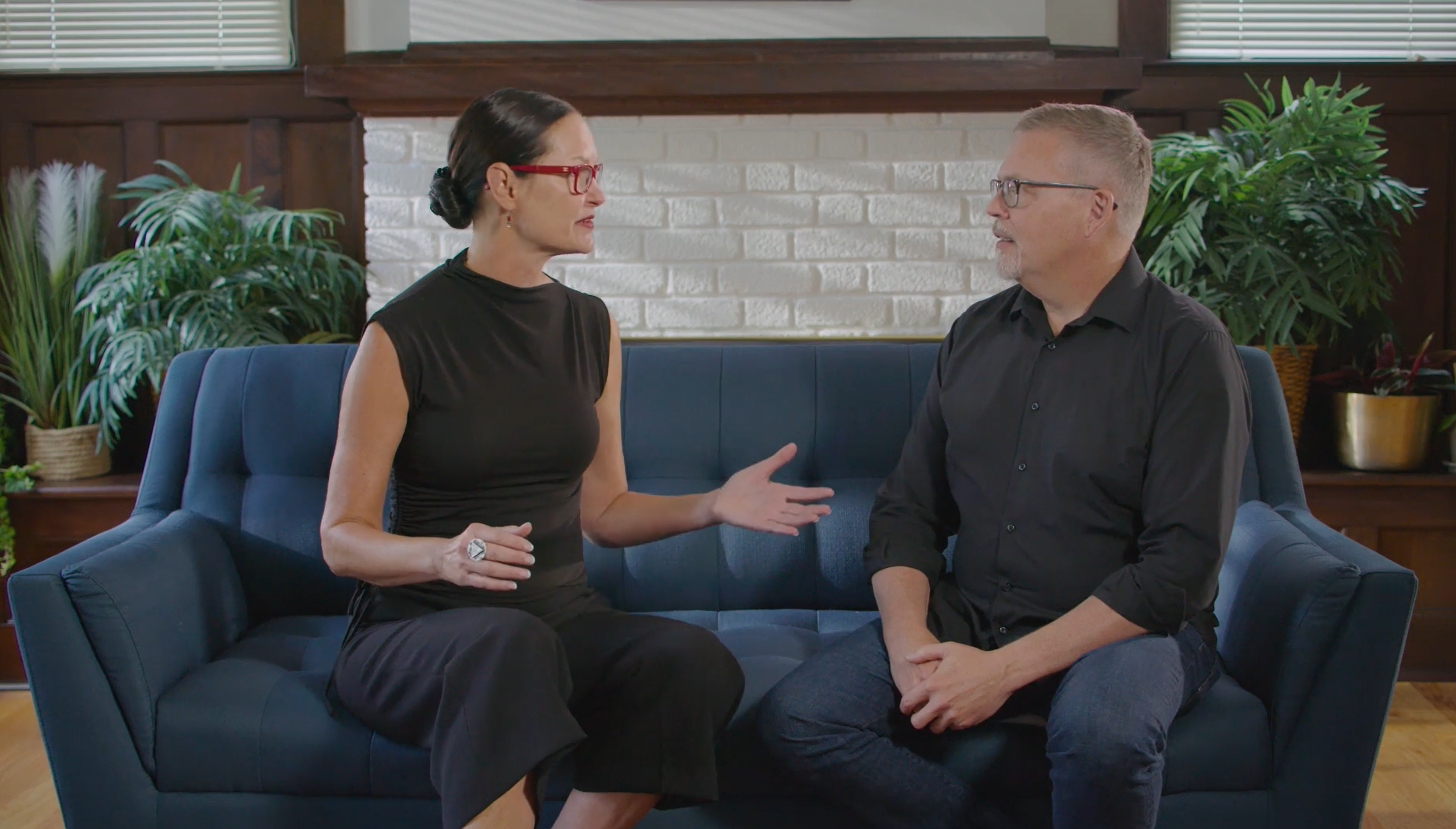This is Part Two of a two-part blog series. Read Part One here.
Imagine a scenario where you roll out of bed first thing in the morning, and immediately open emails and start answering them. You start to feel overwhelmed about the day ahead, your mind is spinning, your chest gets tight, so you turn to social media for a “mental break” while getting the kids ready for school and out the door. You don’t have time to eat breakfast, so you grab a cup of coffee on your way into work.
Now imagine if instead, you woke up earlier to meditate, journal, and exercise before getting your kids up and ready for the day, including having a healthy, not-rushed breakfast before heading to school and work.
How different do your physical, mental, emotional, and spiritual states and energy feel in these two scenarios?
If you didn’t read my previous blog, head there first to get an overview of what energy management means, and make sure to take the assessment, available on HBR (scroll down and expand the box for “Are You Headed for an Energy Crisis?”). This will give you a clear picture of how you are managing your energy.
As I mentioned previously, we live in a world that treats us like machines that turn on and run at maximum speed all the time. Said another way, we’re treated like we need to be in a constant harvest mode.
But nature shows us that nothing produces forever and that there are cycles to energy, so that you can produce when the time comes. The more we understand that our energy cycles throughout the day, the more we can embrace and work with our bodies to maximize our energy.
Ideally, we all want to be physically energized, emotionally connected, mentally-focused, and spiritually aligned with our values. To develop in each area takes time. Just like working out grows muscle strength over time, spending time working with your emotional or spiritual self also grows your capacity in those areas. Let’s dive in and talk about ways you can build more resilience and energy by focusing on your physical, emotional, mental, and spiritual states for a healthier work-life balance.
Physical
The place to begin is your physical energy, which impacts everything you do. We all know that getting regular exercise gives us more energy, but you also get important physical energy by taking regular, short breaks to recharge during the day.
Interestingly, taking breaks every 90-120 minutes is part of our physiology. Most of us also have our lowest energy state between 2-4 pm in the afternoon.
You know what if feels like when your body needs that break. You may start to yawn, it’s hard to concentrate, your belly is rumbling for a snack, and your productivity goes down. What is so cool about our bodies is that recovery can take place in a short period of time if you disengage from work and take a walk down the stairs, listen to your favorite song, do some deep breathing exercise, or chat with a colleague.
Physical Rituals
- Breath: This is the simplest and most accessible. Find what works for you. A simple one is to breath in, to the count of 3 and breath out to the count of six. Set your timer or have specific times like after breakfast, when you sit down at your desk, before making a phone call, to bring it into your experience throughout the day.
- Food: Identify and play around with what food rituals help you to create sustained energy. Some people benefit from small meals throughout the day. Others benefit from three main meals with snacks. The goal is a sustained amount of energy by not being too full or too hungry. And drink lots of water too.
- Sleep: Go to bed earlier and get at least 7-8 hours of sleep a night. Play around with what is the best number is for you. You may want to test going to bed an hour earlier for a week to see how that changes your energy. You need sleep for growth and repair to happen.
- Exercise: Rotate between cardio and strength training to increase and lower your heart rate.
- Breaks: Schedule short breaks throughout the day and listen to your body when you need that recovery activity.
Emotional
Learning to understand and work with your emotions as information improves the quality of your energy. For example, understanding that anger is about the need to set boundaries and identifying what you need to change helps you to identify a solution (in this case speaking up) and release that emotional energy. In contrast, stuffing anger (or another emotion) and staying in repeated cycles of negative emotion takes a lot of your energy.
Stress sends you into fight or flight mode, and, if not managed, it will result in chronic fatigue, low immune system, headaches, and more. Learning how to shift back into a more present state and release the stress in your body allows for recovery.
Emotional Rituals
- Expend emotional energy: What we tend to call negative emotions (fear, frustration, anger, sadness) play an important role in life to direct us toward something that needs addressing. But being stuck there, releases stress hormones that become toxic in your body. Make sure you create recovery activities to help you release, shift, and recover.
- Refuel: Include pure enjoyment (dance class or reading fiction) or deeply relaxing (nature, cup of coffee with friend) in your life.
- Mindfulness: Practicing mindfulness helps you learn to see from a broader perspective and live more in nonjudgement and observation of what is going on inside of you vs your life being driven by those experiences.
- Gratitude: Practice gratitude shifting you into a more positive emotional state.
- Stories: You have a choice about what story you tell yourself about you, your life and a given event. Tell the most hopeful and empowering story creates more positive energy.
- Technology and Media: Dramatically cut down on all media consumption. Instead of going to social media or a movie when you need a break read fiction or another activity you enjoy.
- Exercise: This also releases endorphins and helps you feel more positive as you have more energy.
Mental
Especially today where we can work from anywhere, anytime, it’s easy to get sucked into multi-tasking or always being available. You think you are getting more done by juggling tasks, but actually even one email or phone call you take while working on a task increases your completion time by 25%. Executives that go work in a conference room away from phone and computers or block all distractions have found they can get a report done in one-third of the time.
Mental Rituals
- Realistic optimism: This isn’t about having your head in clouds or in the sand. It’s about keeping eyes open and seeing the world as it is but working with positivity on your desired outcome.
- Do mental sprints: focus on an activity for 30 minutes, step back, breath, and check in on what your next step should be.
- Rotate your mental channels: it keeps you fresh to sequence activities like shift between reading, email, editing, reading, resting, and so on.
- Space: Doing short walks or meditation during the day allows for your intuition to come in and enhance ideas, solutions, creativity, and thought.
Spiritual
We feel the most positive and energized when we are doing work that is aligned with our values. Clarify your priorities by looking at what you do best and enjoy the most, and make sure you’re allocating time and energy to your work, family, friends, health, and service to others according to your core values.
Spiritual Rituals
- Practice: meditation, yoga, time to reflect on values
- Renewal: spend time in nature, reading a book that talks about how to lead a good life, listening to meaningful music.
- Weekend trick: Imagine when you get home from work that it is the weekend. Relate to your family and your tasks with a weekend energy and attitude.
Now, let’s put this together into a plan of action. Look back at your scores from the “Manage Your Energy Not Your Time” assessment. Identify one to three rituals that you want to start implementing into your life. Schedule them on your calendar, tell others, get an accountability partner, and then start.
You will forget, you will fail, you will avoid, but that is OK. Just get right back up and start again. Working out twice a week is better than not working out at all. Sleeping an extra hour one day a week is an improvement. Spending 3 minutes in meditation instead of the 10 you planned is still better than spending that time on social media. Celebrate your progress. Notice your level of energy changing. And once you have built in one ritual, that confidence will help you build more.
Karen
PS — For more tips on managing your energy, check out the book “The Power of Full Engagement,” by Jim Loehr and Tony Schwartz. Here’s a short video overview of the book’s message.
![Stressed? Tired? Feeling Burnt Out? Here’s How to Renew Your Energy Energy renewal: A woman meditating next to her laptop. [Stressed? Tired? Feeling Burnt Out? Here's How to Renew Your Energy]](https://veritusgroup.com/wp-content/uploads/2023/01/AdobeStock_483785997-scaled.jpeg)
![Woman meditating in the office. [Instead of Time Management, Focus on Optimizing Your Energy Levels]](https://veritusgroup.com/wp-content/uploads/2023/01/AdobeStock_323615435-scaled.jpeg)





0 Comments